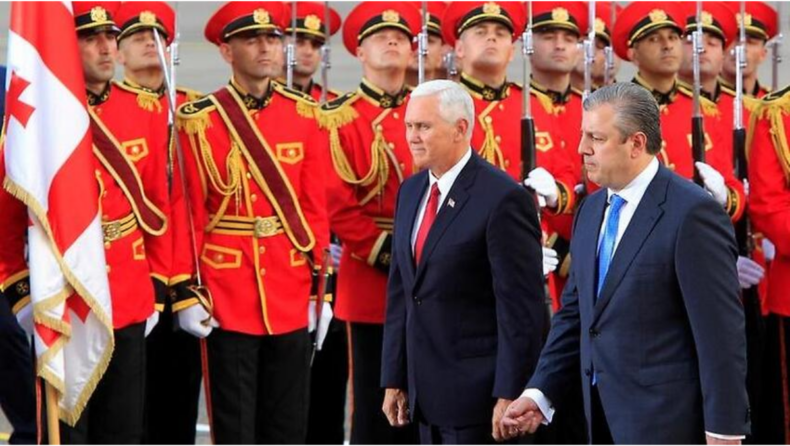
A great sense of anxiety has settled across the Western Balkans due to Russia’s war in Ukraine. The photos emerging from Ukraine have reawakened memories of the atrocities that afflicted the region in the 1990s. Particularly in Bosnia and Herzegovina and also, the border region between Serbia and Kosovo.
Given Russia’s strong economic, military, and soft power ties, there are fears that Moscow could try to further destabilize the region to divert attention away from its botched effort in Ukraine.
Russia’s Influence on a Vulnerable Region
Russia’s influence in the Western Balkans is still strong today. It’s economic involvement in the region has been concentrated in critical industries such as energy. Hence, it has taken advantage of patronage and corruption structures.
Russia has also bolstered its military ties with Serbia in recent years, selling it weapons, planes, and air defense systems. The cornerstone for Russia’s soft power in the region, however, is its Orthodox faith and continuing resistance to Kosovo’s independence. This has allowed Russian influence to spread widely in Serbia, Bosnia and Herzegovina, and Montenegro. As there are already large sectors of the population that are ardently pro-Russian.
Since Russia’s invasion of Ukraine began in February, pro-Russian gatherings have sprung up in Serbia, Montenegro, and Bosnia. It often involves far-right groups with direct ties to Russia.
These pro-Russian groups view Russia as a recovering land that is rightly theirs. They much likely want Kosovo “returned” to Serbia. Russia sees the Western Balkans as a buffer zone, similar to Ukraine, where it can maintain a sphere of influence while undermining the West.
Regional Responses to the Ukraine Conflict
The divisions between pro-Western and pro-Russian voices across the Balkans have been highlighted by Russia’s invasion of Ukraine. NATO members Albania, Croatia, Montenegro, and North Macedonia, as well as NATO candidate Kosovo, were fast to follow EU penalties.
Serbia and Bosnia and Herzegovina have refused to join sanctions against Russia, while backing UN resolutions criticizing Russia’s actions. As a result, they are the only two European countries not on Russia’s list of “unfriendly” states.
Fears that the Ukraine conflict may generate unrest in the Balkans are particularly prevalent in Bosnia. Following Russia’s invasion of Ukraine, Russia’s envoy to Bosnia and Herzegovina fueled these anxieties by warning. And if there is any reconciliation between Bosnia and NATO would be met with a Russian retaliation.
The crisis in Ukraine has heightened fears about Kosovo’s own security in Kosovo, where the public mood is firmly pro-Western and anti-Russian. Government leaders have been outspoken in their demands for a speedy NATO membership process and a permanent NATO base. In light of the ongoing conflict, Kosovo, like other European countries, has vowed to raise defense spending to the NATO threshold of 2% of GDP. They even established a “security fund” where civilians can directly donate to the armed services.
Although Montenegro was eager to join the sanctions against Russia. Though, it has yet to apply the majority of them due to political infighting.
It’s past time for Europe-U.S. to take action
To prevent additional destabilization in the Balkans, Europe and the United States must step up their efforts. Depending on how the West responds, the region might face two very different futures. First, rising instability that Russia could exploit and second, long-term incorporation into the European community.
The horrific battle in Ukraine is driving all parties to adopt a clear political route and make strong decisions after years of deadlock. The future of the region will be discussed in the next months. It will beginning with a European summit dedicated to the Western Balkans in June. The summit will be hosted by France as chair of the Council of the European Union. It will try to clarify the European perspectives, reinvest in the region, and define a meaningful common vision for the decades ahead.
In the economic realm, Europe and the US should step up their support for the region to help Western Balkans countries. As to deal with the numerous negative consequences of the Ukraine conflict, ranging from rising energy prices to food poverty. In terms of energy, EU members have already agreed to allow Western Balkans countries to participate in common gas purchases in order to keep energy costs down.
As the US and Europe have already considered what the continent’s future could look like. There is potential to enhance engagement with this part of Europe in order to strengthen stability and security both inside and outside the union. Leaders in the region should also assess the future they wish to create for their country.













